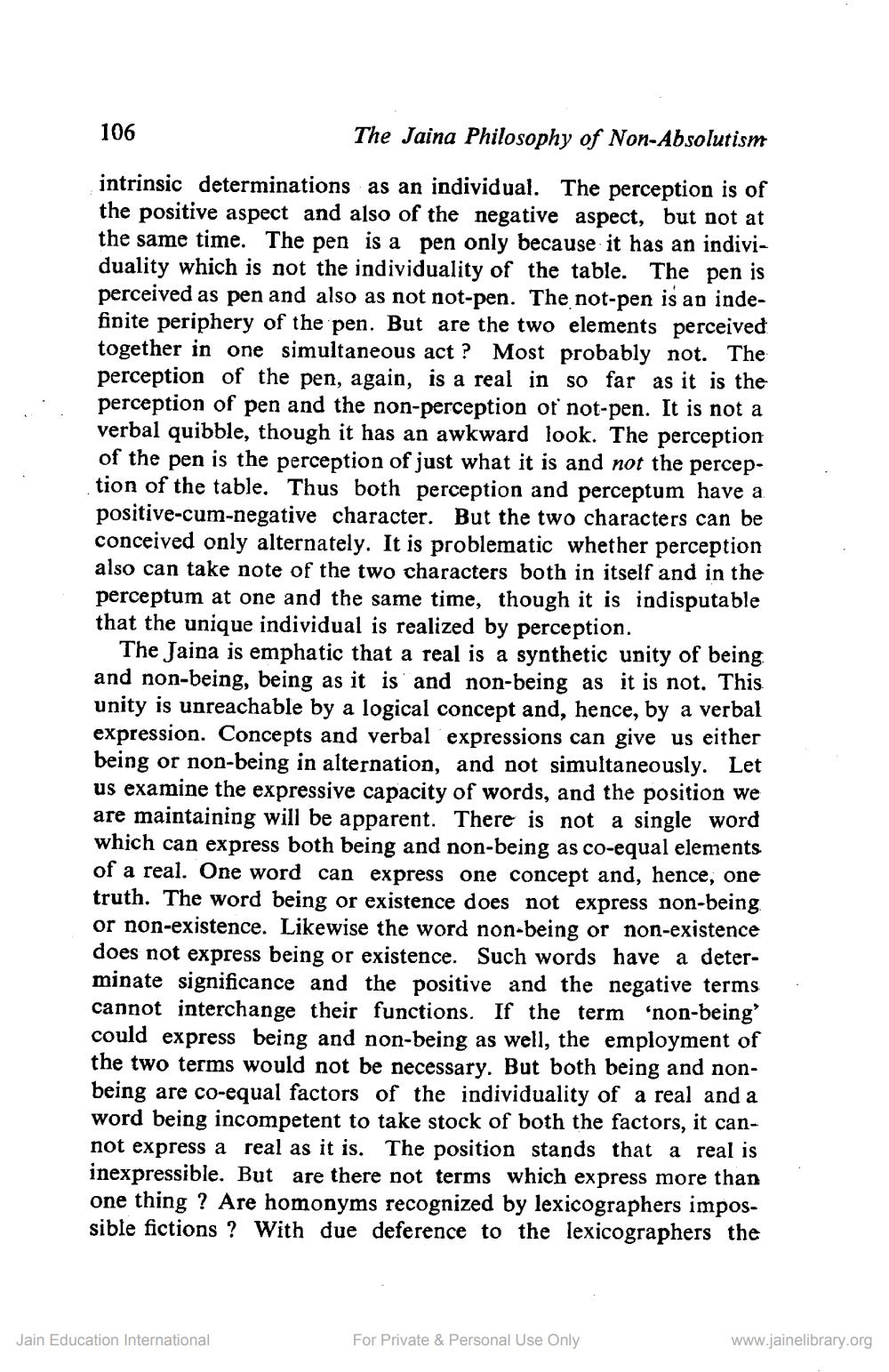________________
106
The Jaina Philosophy of Non-Absolutism
intrinsic determinations as an individual. The perception is of the positive aspect and also of the negative aspect, but not at the same time. The pen is a pen only because it has an individuality which is not the individuality of the table. The pen is perceived as pen and also as not not-pen. The not-pen is an indefinite periphery of the pen. But are the two elements perceived together in one simultaneous act? Most probably not. The perception of the pen, again, is a real in so far as it is the perception of pen and the non-perception of not-pen. It is not a verbal quibble, though it has an awkward look. The perception of the pen is the perception of just what it is and not the perception of the table. Thus both perception and perceptum have a positive-cum-negative character. But the two characters can be conceived only alternately. It is problematic whether perception also can take note of the two characters both in itself and in the perceptum at one and the same time, though it is indisputable that the unique individual is realized by perception.
The Jaina is emphatic that a real is a synthetic unity of being and non-being, being as it is and non-being as it is not. This unity is unreachable by a logical concept and, hence, by a verbal expression. Concepts and verbal expressions can give us either being or non-being in alternation, and not simultaneously. Let us examine the expressive capacity of words, and the position we are maintaining will be apparent. There is not a single word which can express both being and non-being as co-equal elements of a real. One word can express one concept and, hence, one truth. The word being or existence does not express non-being or non-existence. Likewise the word non-being or non-existence does not express being or existence. Such words have a determinate significance and the positive and the negative terms cannot interchange their functions. If the term 'non-being' could express being and non-being as well, the employment of the two terms would not be necessary. But both being and nonbeing are co-equal factors of the individuality of a real and a word being incompetent to take stock of both the factors, it cannot express a real as it is. The position stands that a real is inexpressible. But are there not terms which express more than one thing? Are homonyms recognized by lexicographers impossible fictions? With due deference to the lexicographers the
Jain Education International
For Private & Personal Use Only
www.jainelibrary.org




